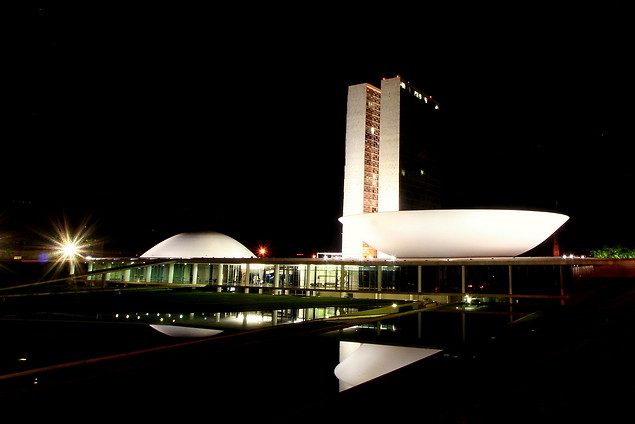Posted by Helio Tollini[1]
However, two less appealing features of the legislative appropriation process always strike international observers: the approval by Congress of more than ten thousand amendments each year, and the existence of a specific “reserve” for legislative allocation of about US$ 2 billion, which finances part of the approved amendments. In fact, each congressman receives a “financial quota” for his/her individual or collective amendments. While internationally uncommon, the latter process has provided some order to the pork barrel politics which seems to be inevitable in countries with strong legislative input in the budget process.
I discuss these and other issues in a paper recently published in the OECD's Journal on Budgeting, Vol. 9 (2009): Reforming the Budget Formulation Process in the Brazilian Congress.
To minimize the negative side effects related to rent seeking and corruption, I recommend the adoption of four measures to avoid the inclusion of many new appropriations in the budget law without a deeper analysis of the impact in the public policies. The aim is to transform the budget law into a more effective instrument for planning and allocating public spending according to political priorities. The measures I propose are as follows: · First, to not allow re-estimation of revenues by the Congress. Presently, this happens regularly. In my opinion, this practice disrespects the spirit of the Constitution, which does not foresee this technical role for the legislative branch; · Second, to impose stricter financial and quantitative rules on amendments proposed by individual congressmen and by State representations; · Third, to limit the analysis and voting power of the draft budget law by the permanent thematic committees in the House of Representatives and the Senate, in their respective fields of competence, while reserving for the Congress Budget Committee the responsibility to coordinate, systematize, impose spending limits, and consolidate the examination and voting process; and · Fourth, to merge into a single body of the House and Senate the units of technical experts in the budgetary field, with adequate safeguards for them to provide the highest technical expertise to Congress, but also sufficient autonomy from political pressures. These reforms are necessary to modernize and make more efficient the role of Congress in the budget preparation process in Brazil. After 21 years (1964-85) of military regime, the National Congress approved a new Constitution in 1988. The legislature regained its budgetary rights, with almost unlimited powers to amend the draft budget (except for personnel, mandatory transfers to local governments, and debt-related expenditures). Due to a lack of agreement between the executive and legislative regarding the nature of the budget execution process—whether appropriations should be authoritative or mandatory—a new organic public finance law was never approved. Such an organic law would provide a more streamlined framework for the budget process. Lacking such a law, the old budget systems law from 1964 is still partially in place, to the extent that it is compatible with the 1988 Constitution. Recently, three senators independently presented different draft legislation for reforming the management of the public finances, meaning that the debate might be reignited once more. One of these drafts incorporates most of the suggestions proposed in this article. Apart from the regulation of the amendment process, I suggest to define rules to address issues such as · the use of a controversial clause (“errors or omissions”) to circumvent the Constitution and introduce higher revenue estimates (usually around US$ 5 billion), which happens every year regardless of the economic indicators (although these changes are always based on a “deep” technical study); · the tendency of congressmen to transfer resources to private entities, which in addition to more fragile control and late reporting of these expenditures, leads to repeated congressional investigations on the receiving of bribes by congressmen; · the centralized (in a joint committee) bicameral examination process of the draft budget, leaving basically no role to each house's permanent committees; and · the existence of two institutional advisory services in budgetary matters, one for each house.
[1] Helio Tollini is a former IMF staff member and presently a Senior Budget Advisor to the Brazilian Congress.






